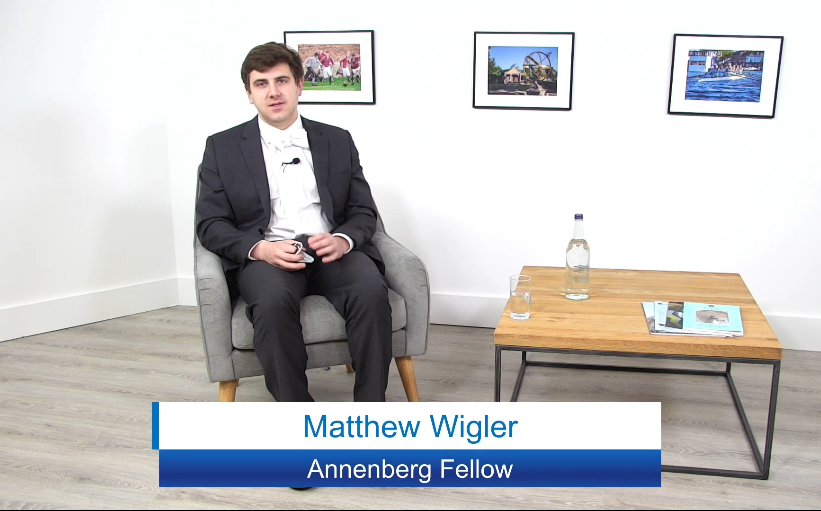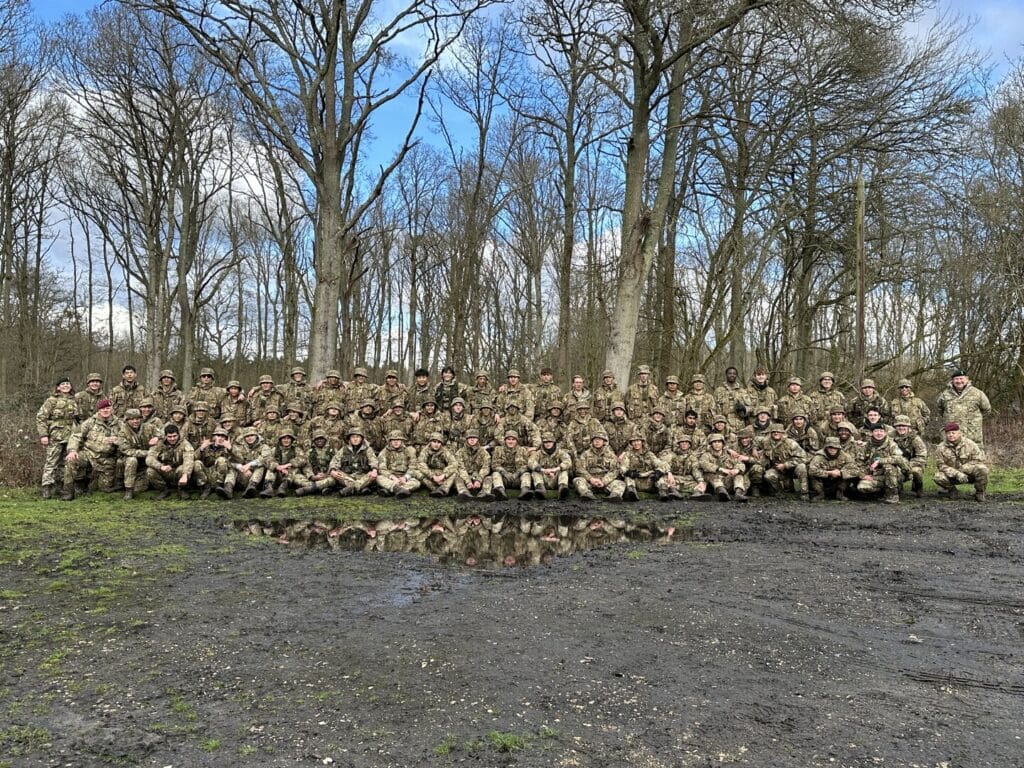As the Lent Half became the ‘Lockdown Half’ this pandemic-wracked year, one of the high points of Eton Virtual for me was the opportunity to deliver the weekly Annenberg Lecture Series for pupils, families and the Eton community each Wednesday evening. The series gave me a unique chance to share the kinds of lessons I teach at Eton with a much wider audience.
Each year, Eton selects a young American scholar as its Annenberg Fellow, inviting them to join the Eton community to teach and engage with pupils while sharing an American perspective on various subjects. The programme aims to strengthen the Special Relationship between our partner countries. I have been lucky to experience that special honour as the 2020-21 Annenberg Fellow, though I stepped into the role during a challenging time.
Amidst such unusual circumstances, I have taught classes in the Politics and English Departments, offered Options on ‘Political Polarization’ and ‘The American Revolution’, supported a wonderful tutor group in Jourdelay’s, and assisted the Debate Society. In my Year 9 English classes, I taught F. Scott Fitzgerald’s The Great Gatsby, Harper Lee’s To Kill a Mockingbird and John Steinbeck’s Of Mice and Men, as well as several short stories and essays by the likes of William Faulkner and W.E.B. Du Bois. My Politics classes have been similarly diverse in scope.
As we returned to virtual school in January, Director of Development Justin Nolan’s idea for an ‘Annenberg Lecture Series’ gave me a platform to provide insights into key issues and pressing challenges in politics. Responding the latest developments in the United States, Britain, and around the world each week, the six Annenberg Lectures I have delivered so far have covered a wide range of topics.
- Shared on January 20th, President Biden’s Inauguration Day, my first lecture marked the occasion with the title ‘Insurrection, Impeachment, and Inauguration’, looking back at the January 6th Capitol attack and forward to Donald Trump’s impeachment trial and the new presidential administration.
- Inspired by Eton’s moving Holocaust Remembrance Day programming, my second lecture aimed to reflect on the issue of genocide in the Twentieth Century.
- Titled ‘Mind the Gap: Political Polarization in the US and UK’, the third lecture explored the challenges facing our world. A polarized pandemic, and a pandemic of polarization, the lecture investigated what we mean by political polarisation, what its causes and its consequences are, and how we can respond to it.
- Lecture four turned the programme’s attention to the most pressing long-term threat facing humanity: climate change. With the title ‘Paris, Pittsburgh, and Glasgow: Climate Change and the Challenge of International Cooperation’, the lecture examined the stakes of climate change, how the world has attempted to halt the problem, and why such responses have thus far fallen short.
- Last week’s lecture, the fifth in the series, spotlighted an obscure rule in the U.S. Senate called the filibuster, which raises the threshold necessary to pass important legislation through the chamber from a majority vote to sixty out of one hundred legislators. The talk investigated the contours of the filibuster debate, how it emerged, and its incredible consequences.
The Annenberg Lecture Series is something entirely new to the Annenberg Fellowship and a reflection on the evolving teaching landscape in tumultuous times. I hope that I have perhaps begun a new tradition for Annenberg Fellows that might stretch on into the future, though hopefully alongside the return of in-person teaching next Lent Half!




